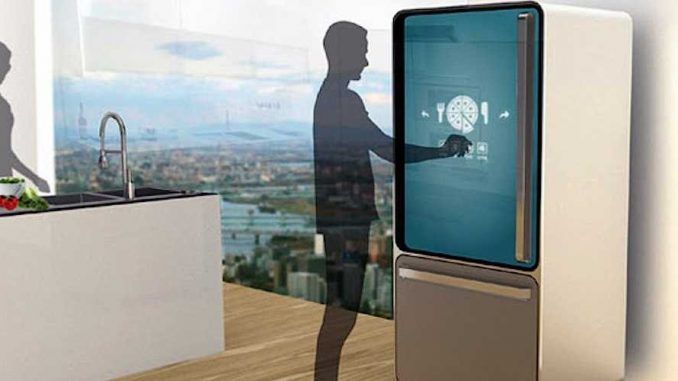
The Director of national intelligence, James Clapper, recently revealed that US intelligence agencies are using various “smart home” devices in order to spy on citizens.
The ever growing list of smart devices such as thermostats, cameras, and other appliances that are connected to the internet, provide authorities with the ability to spy on its citizens…..and that includes refrigerators
Kristan T. Harris from The Rundown Live reports:

BYPASS THE CENSORS
Sign up to get unfiltered news delivered straight to your inbox.
You can unsubscribe any time. By subscribing you agree to our Terms of Use
New refrigerators that connect to the internet are now entering homes with cameras installed in them that can be used to surveil you.
In post 9/11 America, we have learned that government surveillance systems have gone to the absolute extremes to collect metadata on residents, even compiling citizen rankings.
Soon all things will be connected through the internet, creating smart homes that are equipped with smart meters which relay information to smart grids to create a smart city.
One thing we can learn from history is that the Internet is seldom if ever a secure environment. Hackers, trolls, political enemies, and even government employees have proven it can be easily breached and abused to expose, and sometimes even blackmail, individuals.
“Devices, designed and fielded with minimal security requirements and testing, and an ever-increasing complexity of networks could lead to widespread vulnerabilities in civilian infrastructures and U.S. government systems,” Clapper said. “These developments will pose challenges to our cyber defenses and operational tradecraft but also create new opportunities for our own intelligence collectors.”

February 13th, 2016 Intel Chief Confirms Our Worst Nightmares: Home Smart Devices Are Ideal for Spying on You
United States — Director of National Intelligence James Clapper stated to the Senate Armed Services Committee that the Internet of Things (IoT) — so-called “smart” devices, vehicles, and appliances which employ various computer technologies — may be used to spy and keep tabs on people in the future.
http://theantimedia.org/intel-chief-confirms-our-worst-nightmares-home-smart-devices-are-ideal-for-spying-on-you/